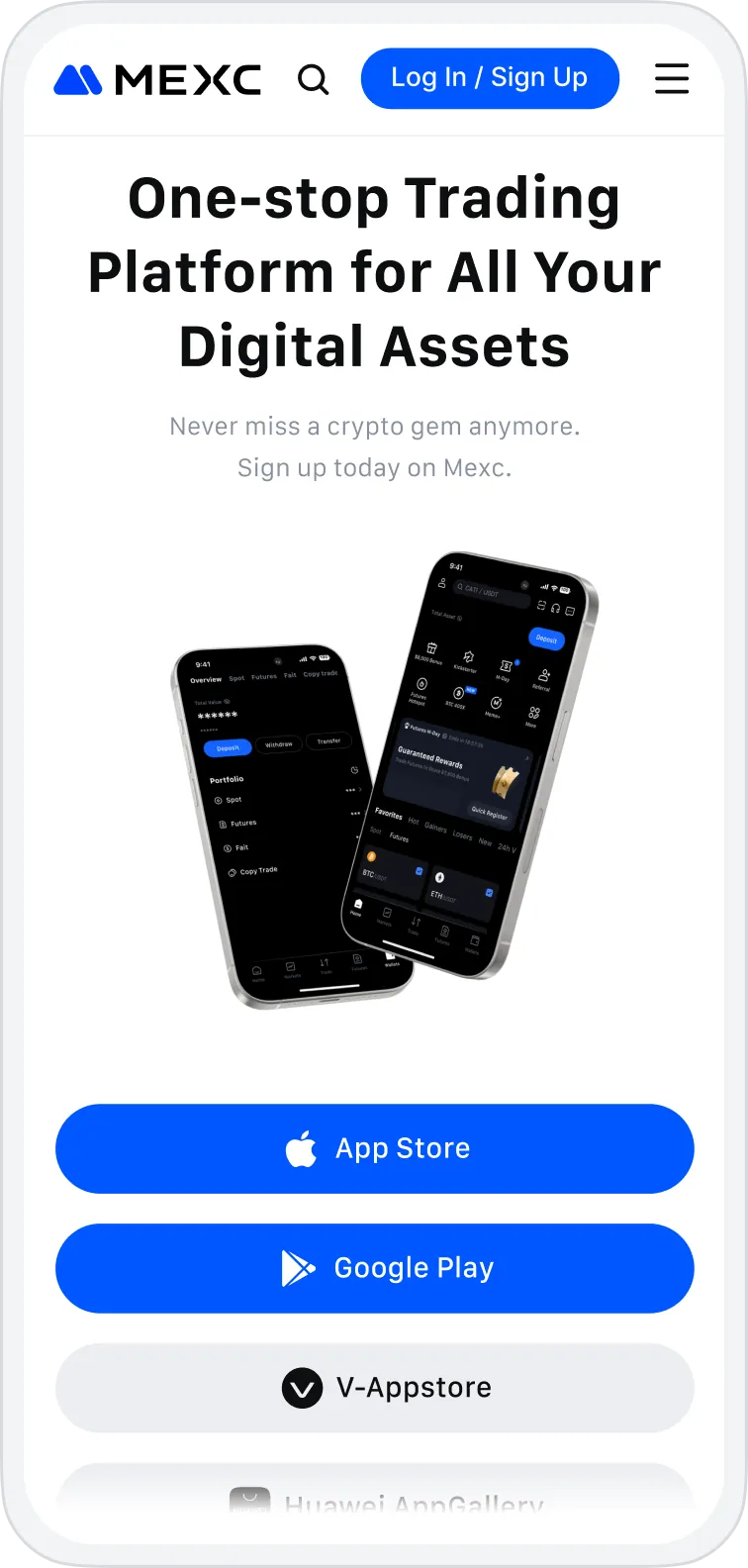
Jupiter Price(JUP)
Jupiter Price(JUP)
1 JUP to USD Live Price:
Jupiter Price Today
The live Jupiter (JUP) price today is $ 0.1652, with a 0.89% change over the past 24 hours. The current JUP to USD conversion rate is $ 0.1652 per JUP.
Jupiter currently ranks #74 by market capitalization at $ 577.76M, with a circulating supply of 3.50B JUP. During the last 24 hours, JUP traded between $ 0.1482 (low) and $ 0.176 (high), reflecting market activity. Its all-time high stands at $ 2.0433053112987576, while the all-time low was $ 0.13003047620648273.
In short-term performance, JUP moved -1.02% in the last hour and +9.69% over the past 7 days. Over the past day, total trading volume reached $ 599.17K.
Jupiter (JUP) Market Information
No.74
49.96%
0.02%
SOL
The current Market Cap of Jupiter is $ 577.76M, with a 24-hour trading volume of $ 599.17K. The circulating supply of JUP is 3.50B, with a total supply of 6863982652.014893. Its Fully Diluted Valuation (FDV) is $ 1.16B.
Jupiter Price History USD
-1.02%
-0.89%
+9.69%
+9.69%
Jupiter (JUP) Price History USD
Track the price changes of Jupiter for today, 30 days, 60 days, and 90 days:
| Period | Change (USD) | Change (%) |
|---|---|---|
| Today | $ -0.001483 | -0.89% |
| 30 Days | $ -0.0361 | -17.94% |
| 60 Days | $ -0.0227 | -12.09% |
| 90 Days | $ -0.0567 | -25.56% |
Today, JUP recorded a change of $ -0.001483 (-0.89%), reflecting its latest market activity.
Over the past 30 days, the price shifted by $ -0.0361 (-17.94%), showing the token's short-term performance.
Expanding the view to 60 days, JUP saw a change of $ -0.0227 (-12.09%), giving a broader perspective on its performance.
Looking at the 90-day trend, the price moved by $ -0.0567 (-25.56%), offering insight into the token's long-term trajectory.
Want to unlock the all-time price history and price movements of Jupiter (JUP)?
Check out the Jupiter Price History page now.
Analysis for Jupiter
This analysis leverages AI models to evaluate Jupiter recent price action, volume dynamics, and market sentiment. Real-time data processing highlights emerging trends and potential trading setups, supporting more informed and timely decisions.
Jupiter market trend today: bullish or bearish?
Current overall sentiment in the JUP market: bearish, bullish 35% | bearish 65%;
| Indicator Dimension | Model Conclusion | Proportion/Threshold | Quick Take |
|---|---|---|---|
| KDJ | Dead Cross | K < D | Short-term momentum cooling down, temperature falling. |
| EMA Group | 7 Buy 0 Neutral 0 Sell | ≥ 80% Buy | All MAs aligned upwards, short-term significantly above long-term. |
| StochRSI | < 20 | Oversold Zone | Short-term falling too fast, watch for rebound opportunity. |
| MACD | Dead Cross | DIF < DEA | Bearish momentum emerging. |
| BOLL (20,2) | Lower ≤ Price ≤ Middle | Between lower and middle band | Relatively weak, but not extreme. |
| RSI (14) | Neutral | 30‑70 | Within normal range, still has room. |
| MA Group | 5‑6 Buy | 60‑80% Buy | Majority of MAs pointing up, bullish alignment dominant. |
| Pivot Point | Pivot ≤ Price ≤ R1 | Between Pivot‑R1 | Just left central pivot, moderately high position. |
【Market Structure】JUP_USDT has been trading at 0.1534 over the 4-hour timeframe, closely aligning with the pivotal pivot point of 0.1521. The price is currently positioned at the R1 resistance level, while most moving average clusters are generating buy signals. The current structure is situated at a critical juncture; the upper R2 resistance level at 0.1558 is just 1.56% away from the current price. 【Momentum Status】The MACD has signaled a bearish crossover, creating divergence from the bullish alignment of the MA/EMA groups. Short-term moving averages continue to trend upward, while the RSI remains in the neutral range without indicating any clear directional bias. The fast and slow indicators are out of sync, resulting in a relatively dispersed momentum distribution. 【Key Price Levels】The upper resistance level R2 is located at 0.1558, representing near-term pressure approximately 1.56% above the current price. The lower support level S1 is at 0.1497, offering a cushion for potential pullbacks around 2.41% below the current price. The deeper support level S2, at 0.1484, serves as a long-term reference point roughly 3.26% below the current price.
This content is generated by AI based on historical and current market data. It is for informational purposes only and does not constitute any investment advice.
What factors influence Jupiter's prices?
1. DEX trading volume on Solana - Higher activity increases JUP demand
2. Solana ecosystem growth - Network adoption drives utility
3. Token utility and governance participation
4. Market sentiment toward DeFi and DEX tokens
5. Competition from other DEXs
6. Overall crypto market trends
7. JUP token supply and staking rewards
8. Partnership announcements and platform updates
Why do people want to know Jupiter's price today?
Price Prediction for Jupiter
In 2040, the price of Jupiter could potentially see a growth of 0.00%. It could reach a trading price of $ --.
For real-time scenario projections and a more personalized analysis, users can utilize MEXC's Price Prediction Tool and AI Market Insights.
Want to know what price Jupiter will reach in 2026–2027? Visit our Price Prediction page for JUP price predictions for the years 2026–2027 by clicking Jupiter Price Prediction.
About Jupiter
Jupiter (JUP) is a decentralized blockchain platform that aims to provide a secure, scalable, and private network for building and deploying applications. The project's primary focus is to offer a platform where businesses and individuals can create their own blockchain applications with ease and efficiency. Jupiter's blockchain uses a proof-of-stake consensus mechanism and incorporates a native cryptocurrency, JUP, which is used to power the network and facilitate transactions within the ecosystem. The platform also supports the creation of decentralized applications (dApps) and smart contracts, making it a versatile tool for a variety of blockchain-based solutions.
How to buy & Invest Jupiter
Ready to get started with Jupiter? Buying JUP is quick and beginner-friendly on MEXC. You can start trading instantly once you have made your first purchase. To learn more, check out our full guide on how to buy Jupiter. Below is a quick 5-step overview to help you begin your Jupiter (JUP) Buying journey.
Sign Up for an Account and Complete KYC
Add USDT, USDC, or USDE to Your Wallet
Head to Spot Trading Page
Choose Your Tokens
Complete Your Purchase

What can you do with Jupiter
Owning Jupiter allows you to open more doors in terms of just buying and holding. You can trade BTC across hundreds of markets, earn passive rewards through flexible staking and savings products, or leverage professional trading tools to grow your assets. Whether you are a beginner or professional, experienced investor, MEXC makes it easy to maximize your crypto potential. Below are the top four ways you can make the most of your Bitcoin tokens
Trading with Extremely Low Fees on MEXC
Buying Jupiter (JUP) on MEXC means more value for your money. As one of the lowest-fee crypto platforms on the market, MEXC helps you reduce costs from your very first trade.
Check out MEXC's competitive trading fees
Furthermore, you can trade selected spot tokens with absolutely no fees via MEXC's Zero Fee Fest.
What is Jupiter (JUP)
Jupiter is the leading DeFi dApp on Solana, serves as Solana’s primary liquidity infrastructure, driving more than 80% of the total retail liquidity movement and seamlessly integrating with the majority of protocols within the Solana network.
Jupiter Resource
For a more in-depth understanding of Jupiter, consider exploring additional resources such as the whitepaper, official website, and other publications:
People Also Ask: Other Questions About Jupiter
Jupiter (JUP) Important Industry Updates
| Time (UTC+8) | Type | Information |
|---|---|---|
| 02-11 14:20:00 | Industry Updates | Over the past 24 hours, CEX net outflow of 59,400 ETH |
| 02-10 18:39:21 | On-chain Data | Yesterday, Bitcoin spot ETF saw a net inflow of $144.9 million, while Ethereum ETF recorded a net inflow of $57 million |
| 02-04 11:04:00 | Industry Updates | Crypto Fear Index Drops to 14 Again, Market Remains in "Extreme Fear" Zone |
| 02-04 00:48:00 | Industry Updates | $285 Million Liquidated Across the Network in the Past 24 Hours, Both Longs and Shorts Wiped Out |
| 02-01 01:12:00 | Industry Updates | Bitcoin breaks below previous low of $80,600, hitting a new low since April 11, 2025 |
| 01-28 07:44:00 | Industry Updates | Dollar Index Hits Lowest Level Since February 2022, Crypto Market Continues Rally |
Jupiter Hot News


$4 Billion in Token Unlocks Coming: WBT, HYPE, JUP Lead the Wave

Crypto News: Over $317M in Token Unlocks Scheduled Across 15 Projects
Explore More about Jupiter
Trade Jupiter (JUP) Markets on MEXC
Explore spot and futures markets, view live Jupiter price, volume, and trade directly.
More Cryptocurrencies to Explore
Top cryptocurrencies with market data available on MEXC
Disclaimer
Cryptocurrency prices are subject to high market risks and price volatility. You should invest in projects and products that you are familiar with and where you understand the risks involved. You should carefully consider your investment experience, financial situation, investment objectives and risk tolerance and consult an independent financial adviser prior to making any investment. This material should not be construed as financial advice. Past performance is not a reliable indicator of future performance. The value of your investment can go down as well as up, and you may not get back the amount you invested. You are solely responsible for your investment decisions. MEXC is not responsible for any losses you may incur. For more information, please refer to our Terms of Use and Risk Warning. Please also note that data relating to the above-mentioned cryptocurrency presented here (such as its current live price) are based on third party sources. They are presented to you on an “as is'' basis and for informational purposes only, without representation or warranty of any kind. Links provided to third-party sites are also not under MEXC’s control. MEXC is not responsible for the reliability and accuracy of such third-party sites and their contents.
JUP-to-USD Calculator
Amount
1 JUP = 0.1652 USD
